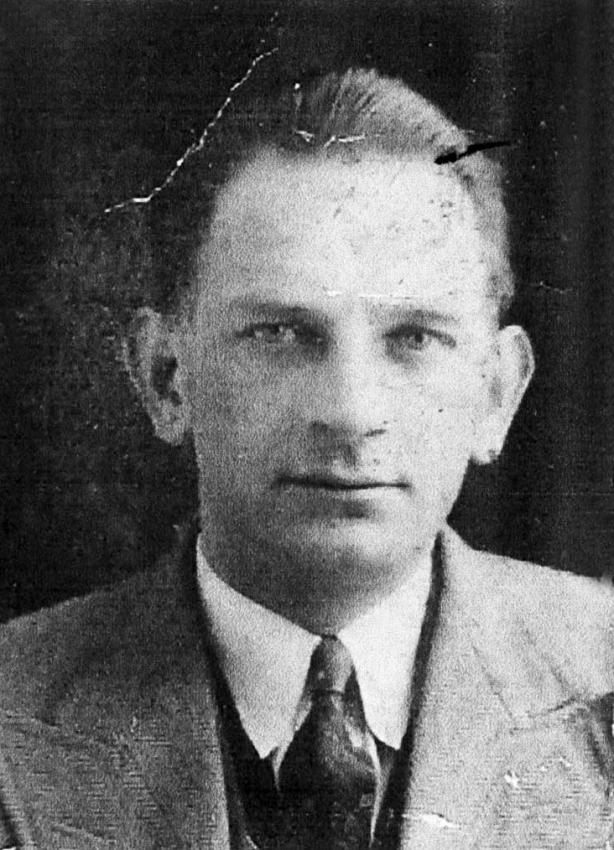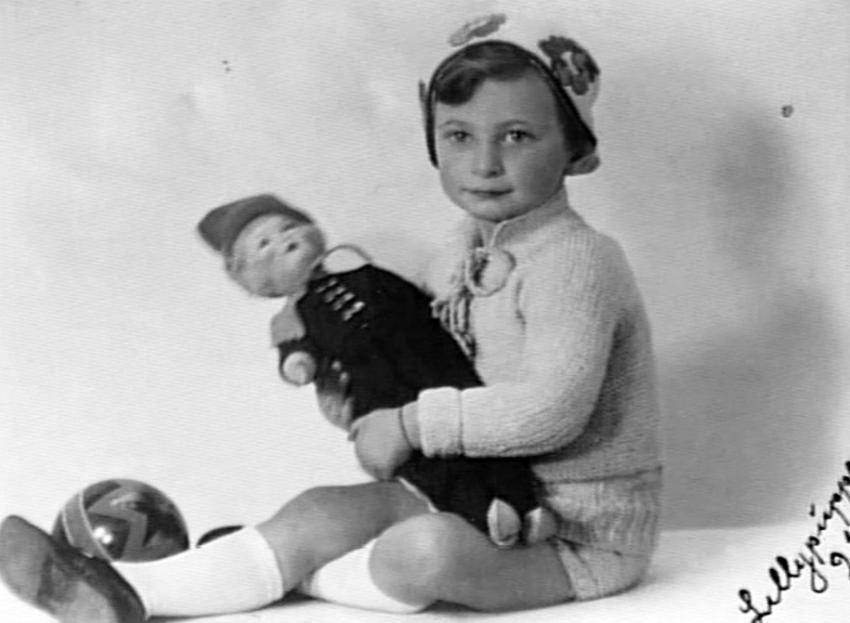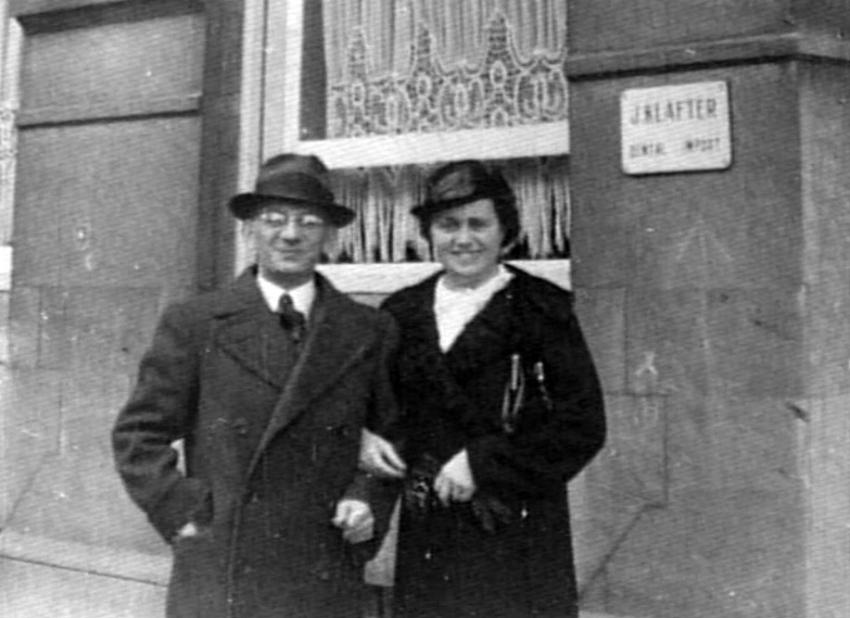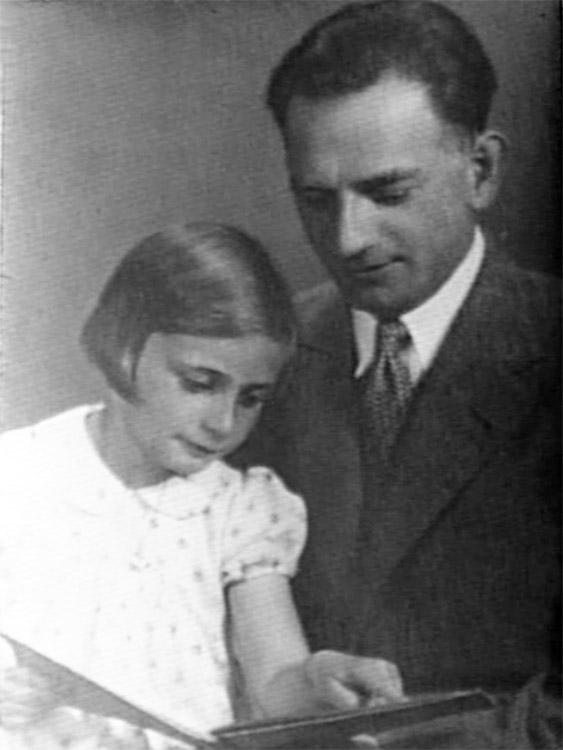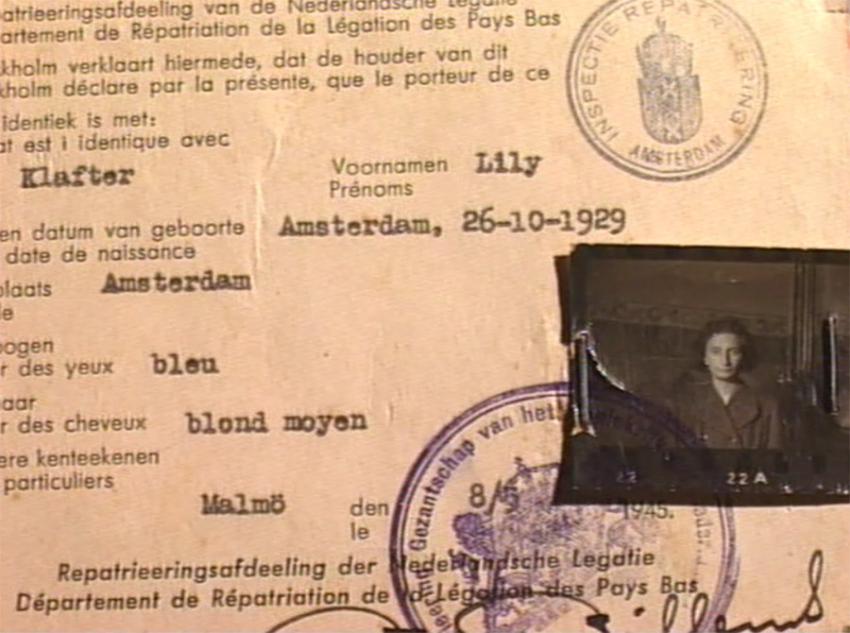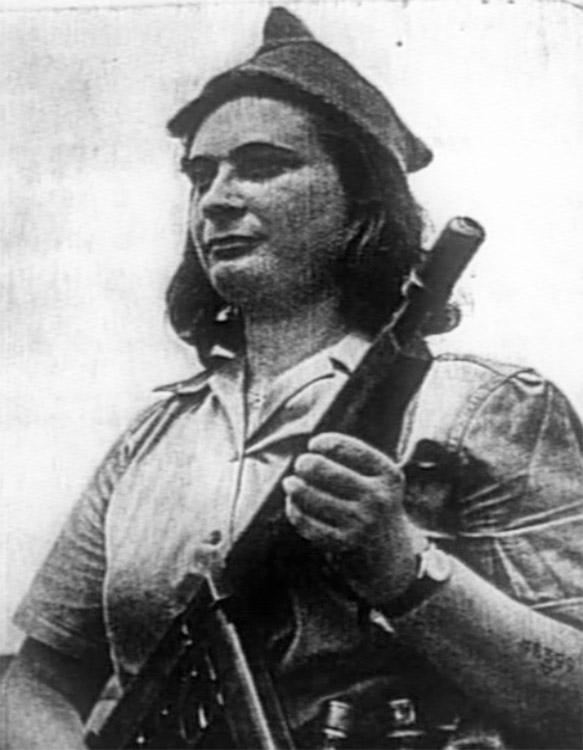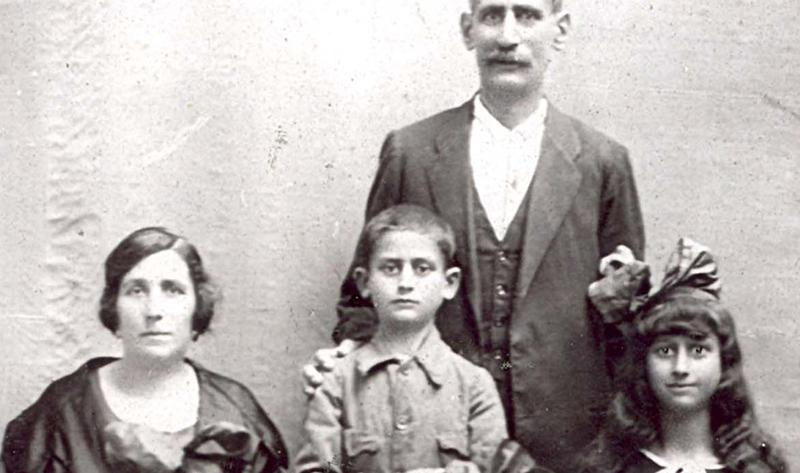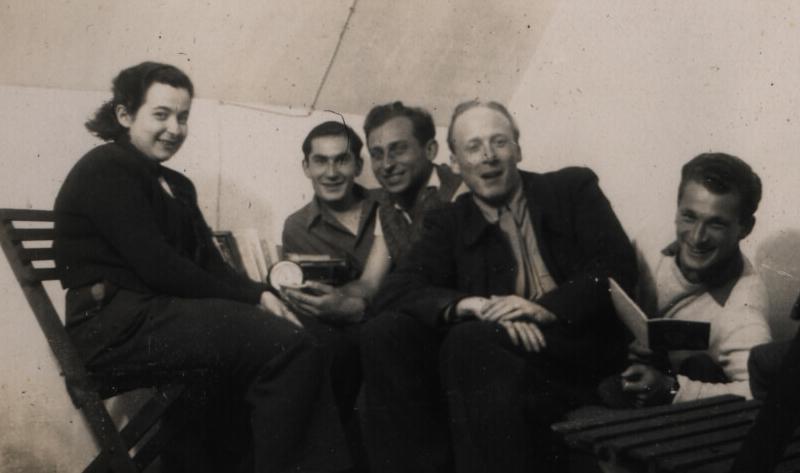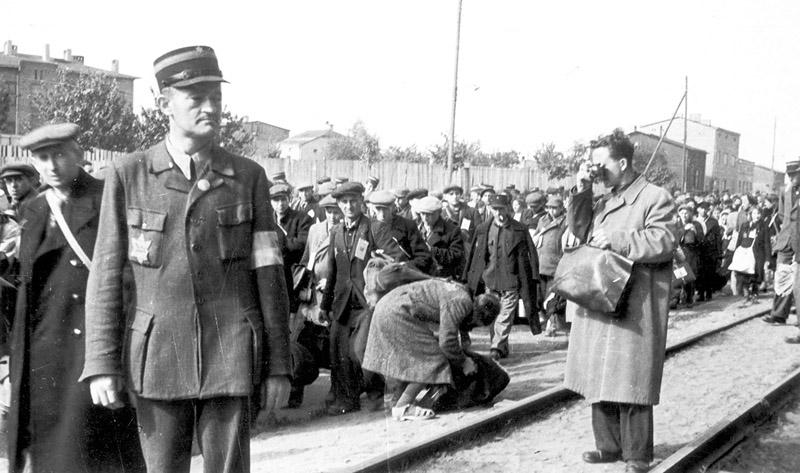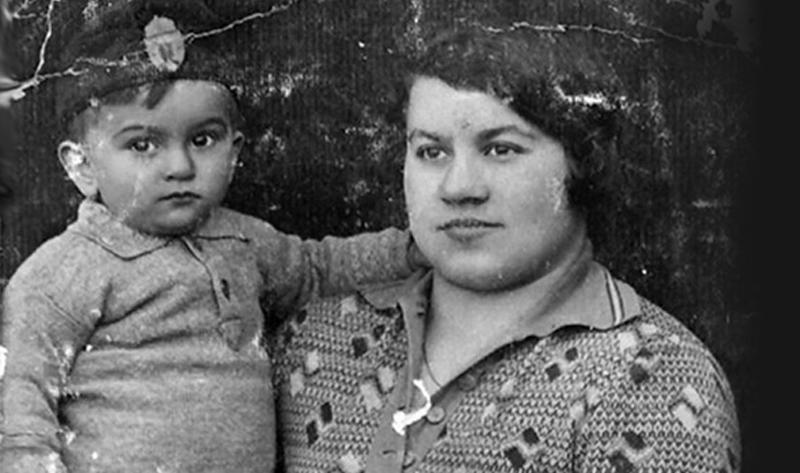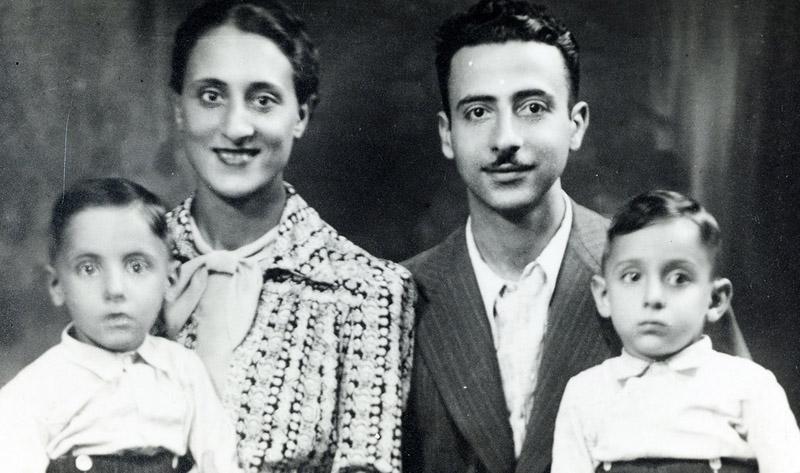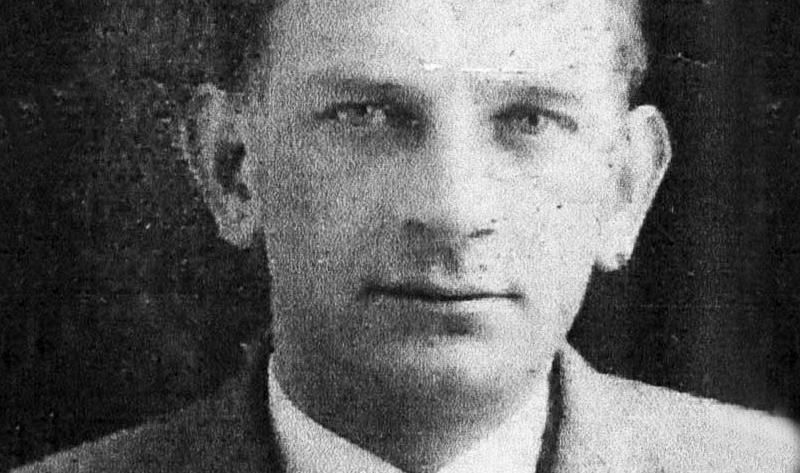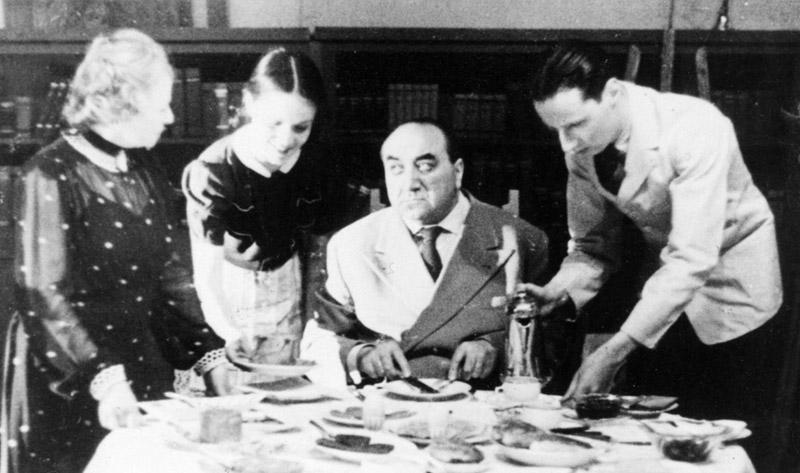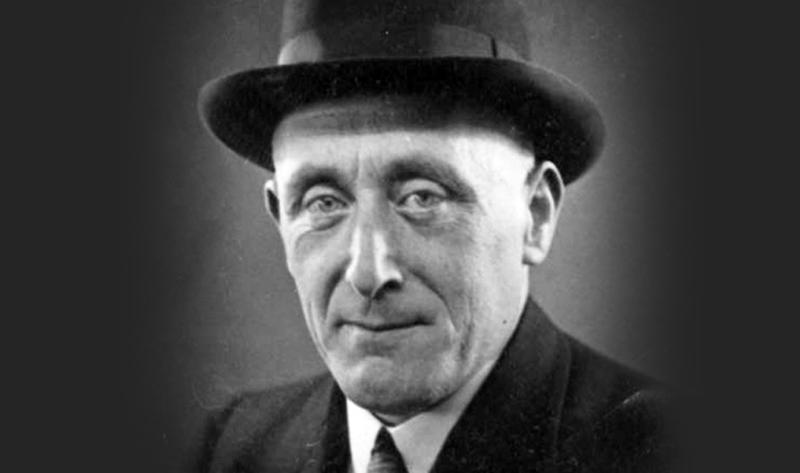The Klafter Family from Amsterdam
3 June 1944: "The Philips Deportation" – Transport of Jews from Vught to Auschwitz
The Klafter Family from Amsterdam
3 June 1944: "The Philips Deportation" – Transport of Jews from Vught to Auschwitz
On 3 June 1944, a deportation train left the Vught camp in the Netherlands for Auschwitz. The Germans had decided to evacuate the Jews in the camp ahead of the anticipated Allied invasion of Western Europe. This transport became known as the "Philips Deportation", in light of the fact that the deportees were Jewish forced laborers at a branch of the Philips factories operating in Vught. Among the deportees were Liba Klafter and her 14-year-old daughter Lilly from Amsterdam.
In 1926, Liba-Mitzi Hollander, scion of a Viennese rabbinic family, visited her cousins in Amsterdam. There, she met Jakob-Josef Klafter, from Karlsruhe, Germany, who had moved to the Netherlands in 1914. They got married, and their daughter Lilly was born in 1929. Jakob ran a business importing dentistry equipment on the first floor of their 4-storey home. The family was well off, and Liba had an active social life and enjoyed entertaining in her home. After the annexation of Austria to Germany (Anschluss) in March 1938, Liba brought many members of her family to Amsterdam from Vienna, including her mother Sheva (Swewa) Hollander, who moved in with them.
The Netherlands was occupied by the Germans in May 1940, and from September, restrictions and decrees were imposed on the Jews: Most Jewish newspapers were banned, government appointments were forbidden, and Jewish lecturers were fired from universities. Jews were ordered to present documentation of any businesses they owned, and a Jewish Council, "Joodse Raad" was established.
In January 1941, all Jews were forced to register with the authorities. In February, young Jews in the Jewish Quarter in Amsterdam were hunted down, and hundreds of Jews were caught and sent to Dachau and Mauthausen. By the summer of 1941, Jews were not permitted to visit public institutions, including parks, bath houses, horse-racing grounds and hotels. The Jews were also subjected to a nightly curfew from 8:00 PM until 6:00 AM. They were only allowed to make purchases in stores between the hours of 3:00 PM and 5:00 PM. Public transport could not be used without a special license, and even then, only if there was sufficient space.
Jews were banned from participating in public gatherings, from visiting museums and libraries, trading in markets and the Stock Exchange. Their membership in non-financial organizations was cancelled. New professional unions were established with mandatory membership for journalists, actors, musicians and others, which Jews could not belong to. In August 1941, Jewish pupils were taken out of general schools, and schools for Jews only were set up. In 1942, all Jewish students were forbidden from studying in universities.
At the same time, the looting of Jewish property began. In May 1942, Jews were forced to wear the Yellow Star. In the summer of 1942, the mass deportation of Dutch Jewry commenced. The Jews were detained in transit camps in the Netherlands, and from there, they were deported to the East, ostensibly to work, while in fact most were sent to the extermination camps of Auschwitz and Sobibor.
An "Aryan" trustee was appointed to oversee Jakob Klafter's business. Every morning, Lilly walked an hour-and-a-half from her house to the Jewish school, since as a Jew she was forbidden from using public transport or riding her bicycle, which had been confiscated. When the widespread arrest of Jews commenced, Liba moved her mother to the Jewish home for the elderly in Amsterdam, believing that she would be safe there.
In May 1942, Jakob was arrested and incarcerated in the prison in Amsterdam on charges of resistance activity. Liba kept in contact with him by mail, and sent him food and clothes. The SS man supervising the business at their home harassed Liba, and she feared for Lilly's and her safety. Many raids (Razzias) were conducted on Jewish homes, particularly at night. Liba found a hiding place for Lilly and herself, and transferred food and valuables there. Every evening, the two of them would remove their Yellow Stars and stay in the hiding place, returning home in the morning. Lilly continued to go to school. After a time, they were separated: Liba hid in Amsterdam and Lilly lived outside the city for three months, until her identity was discovered. She was forced to return to Amsterdam, and mother and daughter returned home.
Liba had cousins in Amsterdam who had decided to flee with their families to France, and from there to Spain, with the help of professional smugglers. They tried to persuade her to join them, but Liba didn't want to leave her imprisoned husband.
Liba and Lilly were eventually arrested during one of the daytime raids, and taken to the "Municipal Theater" in Amsterdam, which served as a collection point for Jews. After being held there all night, they were put on a train, and then marched from the railway station to the Vught concentration camp in two lines, surrounded by armed Germans with weapons cocked. They reached the camp in January 1943. There, Lilly learned how to sew, and worked as a seamstress. When she became sick, Liba took care of her devotedly until she recovered.
Liba worked in the Philips factory that was set up in the camp on the initiative of Frederick (Frits) Philips, later recognized as Righteous Among the Nations. There, she was taught to wire radios, delicate work carried out with a magnifying glass and precision soldering. A month after they both arrived at Vught, Liba's mother Swewa was taken from the home for the elderly to the Westerbork camp in the northeastern part of the Netherlands, and from there to Auschwitz in February 1943. Five months later, Jakob was deported from Westerbork to Sobibor. Both were murdered on arrival.
On 6 and 7 June 1943, children under the age of 12 were evacuated from Vught, and sent with their mothers on cattle cars to Westerbork. The next day, 8 June, the children were deported to their deaths at Sobibor. Lilly survived this Aktion, and stayed with her mother in Vught. Recalling life in the camp, Lilly relates:
Men and women were separated in the camp… The barracks had bunks, two women to a bed. Mother and I slept in the same bed. The food contained a lot of pork fat, which I couldn't eat, and blood sausage, which I also couldn't eat. At home we weren't so observant, but it was hard for me to eat non-kosher food. We ate bread and margarine.
The Vught camp was closed in June 1944. Lilly recalls:
They told us that we were being sent East, to work. They put us on passenger trains in good condition. We didn't know where we were going. Two days later we reached the camp [Auschwitz-Birkenau]… They got us off the trains with screams and deadly blows. They stood us in a line… they brought us to the "sauna". We smelled something dreadful, and asked the veteran inmates what the strange smell was. "That's scorched human flesh." We didn't believe our ears. What did that mean? "Yes, here, human beings are burned." When they brought us to the "sauna", we saw chimneys belching out thick smoke…
In the "sauna", the women underwent disinfection and showered. Their body hair was shaven, and their forearms were tattooed with prisoner numbers. They were led to barracks with three-tiered bunks. Six women slept on each bunk. Lilly found it hard to adjust to camp life, and wanted to put an end to her life. Liba deterred her, saying: "We have to stay alive and to tell the world what the Germans did to us."
After some seven weeks, a group of women including Liba and Lilly were transferred from Birkenau to Reichenbach, where the women worked 12-hour shifts at the Telefunken factory. Every day, they walked an hour each way to the factory and back to the camp. Lilly contracted typhus, and Liba dragged her to the factory and back every day until she recuperated.
With the approach of the Red Army, the women were evacuated on foot. After three days of marching, they were loaded onto open coal cars, in the falling snow. They passed through several small camps. At one of these, they were brought down from the cars and made to work for five days in a factory located inside a mountain. From there, they were put on cattle cars, which journeyed back and forth so that they would not encounter the liberators. On the last four days, they didn't receive any food or water, and many of the women died. Their journey ended near Hamburg, where they were forced to clear away debris from the Allied bombardments.
Liba and Lilly were liberated on 1 May 1945, and sent by the Red Cross to Sweden for rehabilitation.
Liba got remarried, to a Jewish Brigade soldier in the British Army, and immigrated to Eretz Israel (Mandatory Palestine) with her daughter in December 1946. Lilly reached a dormitory in Ayanot, where she joined the "Hagganah" and worked as a night guard in an orchard. In May 1948, Lilly enlisted in the IDF and served as a communications officer with the Red Cross, working as an interpreter in prisoner exchanges. She married Ephraim Cohen, and they had three children.
In 1955, Lilly Cohen (Klafter) submitted Pages of Testimony to Yad Vashem in memory of her father, Jakob Klafter and her grandmother, Sheva-Severine Hollander.
